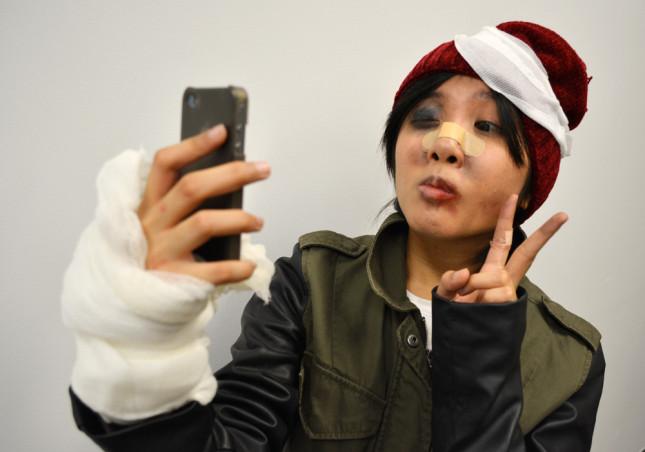By Allison Ridgway
There may not be any duck faces, dirty mirrors or peace signs in its gallery, but a Ryerson associate professor’s new app is an open door into the world of social media for medical professionals.
“Anyone in healthcare already shares pictures and has conversations about what they see in their practice, but that is lost to everyone else,” said Gregory Levey, an associate professor of communication and a co-creator of the app. “There’s nothing for the wider public,” said Levey. “Our idea is to capture medical education for the wider community.”
That’s where Figure 1 comes in. Nicknamed “Instagram for Doctors,” the free app allows doctors to post photographs of various injuries, disorders and oddities medical professionals see each day.
Colleagues can offer online medical advice, diagnoses or simple utterances of “wow” as they scroll through often cringeworthy photos of severed arms, fractured skulls and the strange things doctors remove from their patients’ orifices.
The idea for Figure 1, named after the term for medical illustrations in scientific textbooks, sprung from Levey’s chance meeting with software engineer Richard Penner and Toronto-based physician Dr. Joshua Landy.
“I was on sabbatical last year and I was looking for an interesting project of some kind to pass the time. Creating a medical app never occurred to me,” said Levey.
Released earlier this summer, design for the app took around four months with significant help from Ryerson’s Digital Media from the Digital Media Zone (DMZ) and the School of Professional Communication. Ryerson Futures, a DMZ-based capital investment fund, became an early shareholder in the app.
But while the development may have been straightforward, the app faced legal challenges.
“Protecting the privacy of patients was on the forefront of our thinking about the app,” said Levey, who worked with a team of privacy lawyers to ensure the app would follow patient-doctor confidentiality and consent laws.
The app includes a face detection algorithm that automatically hides faces present in any photo as soon as it is submitted. Other identifying features, such as tattoos, can be removed manually.
Many jurisdictions also require signed consent forms to release patient information and photographs.
The app includes a digital consent form and doctors must fill out an online form with proof of their medical licence before uploading photos.
Right now Figure 1 is only available in North America. Next week it will be available in the U.K.
“It’s still really early on in the project,” said Levey. “We want to try to keep growing, spread to other countries and make the project sustainable.”
Levey also hopes to involve more Ryerson students, particularly those from the school of nursing, who he hopes can provide input on what medical professionals and students need.












Leave a Reply